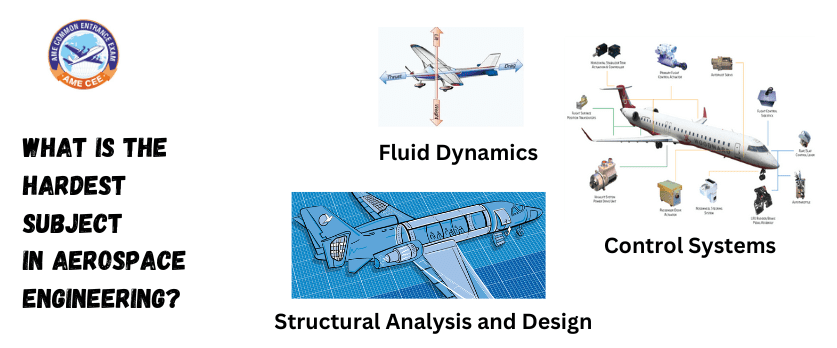Determining the “hardest” subject in aerospace engineering can be subjective and may vary from person to person based on individual strengths and interests. However, some subjects are commonly considered challenging due to their complexity and the depth of knowledge required. Some of these subjects include:
Fluid Dynamics
Understanding the behavior of fluids, especially in aerodynamics, can be complex. Topics like compressible flow, boundary layers, and turbulence can pose challenges.
Thermodynamics
Dealing with the principles of energy and heat transfer in the context of aerospace systems can be challenging. Applications in propulsion systems and thermal analysis are intricate.
Control Systems
Aerospace engineers often work with control systems to regulate the behavior of aircraft and spacecraft. Designing stable and efficient control systems can be a complex task.
Structural Analysis and Design
Analyzing and designing aerospace structures, taking into account factors like stress, strain, and material properties, is a crucial and challenging aspect.
Astrodynamics/Orbital Mechanics
Understanding the motion of objects in space, calculating trajectories, and predicting orbital behaviors can be complex, especially in the context of space missions.
Aerodynamics
While fascinating, the study of how air interacts with moving objects can be challenging. Concepts like lift, drag, and stability are crucial for aircraft design.
In conclusions, Fluid Dynamics or Astrodynamics is often considered the most challenging in aerospace engineering due to complex mathematical modeling and applications.
To become an aerospace engineer you may could join aerospace engineering through AME COMMON ENTRANCE EXAM (AME CEE) this examination you may join Aerospace Engineering approved by AICTE.


